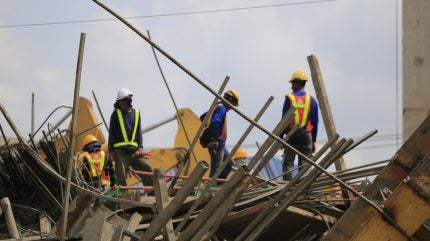
Myanmar Garment Manufacturers Association (MGMA)’s managing director Aye Mi Shein explains that out of the three major regions hit by the earthquake (Mandalay, Sagaing and Nay Pyi Taw region), most garment factories are located in Myanmar’s second largest city, Mandalay.
She adds that most of the factories “which are local productions and home textiles” are now “not operated due to the earthquake strike”.
She estimates that 100,000 factory workers relying on the garment factories are now unable to work due to facilities being unable to operate.
However, she suggests there is less of an impact on the international garment sector that works with CMP [Cut, Make, and Package] and brands.
She says that “some regions of Sagaing, Mandalay, Nay Pyi Taw and Shan state were affected terribly and many families and lives were lost”.

US Tariffs are shifting - will you react or anticipate?
Don’t let policy changes catch you off guard. Stay proactive with real-time data and expert analysis.
By GlobalDataDonations are needed for items such as generators connected to solar panels for well drilling, tents for temporary shelter for the homeless, solar lamps and lighting fixtures, medicine, emergency aid and equipment such as mosquito repellent patches, head flashlights, safety helmet, masks, safety boots, disinfectant, masks and gloves. Donations are also required for body bags, water and medicine.
It says: “We encourage all international buyers still sourcing in Myanmar to engage and support their affected suppliers, workers, and their representatives. Businesses have a responsibility to adhere to international labour standards, as captured in the ETI Base Code, and apply the UN Guiding Principles, particularly during periods of heightened human rights risks, such as earthquakes.”



